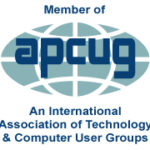Member Fiction: Thinking Machines
30th November 2021
Tim McQueen
Daryl was frustrated. He’d left the job in Philadelphia, suspecting that international travel bans would come, but had risked going home via Cambridge to catch up with colleagues. He’d no sooner landed in London than the Australian government had announced a cap on overseas arrivals. As he wasn’t a politician, a military officer, a senior cleric or an A, B, or C grade celebrity he figured it could be as long as two years before he got home. Daryl had thought of an alternative. He’d booked a train to Moscow, via Munich, where he’d spend his 14 day European quarantine. The University of Munich had fully catered quarantine accommodation with non-contact meeting facilities. From Moscow he’d take the Trans-Siberian eventually to Shanghai. Finally, there would be a position as a supernumerary on a container vessel to Melbourne. He didn’t think the arrival cap would be as strictly enforced for residents returning by sea. So, depending on the quarantine requirements in Russia and China he might get home in a couple of months.
He recalled his first trip to Cambridge. He’d come over for post-graduate mathematics in the early 2000s. He and Gerry had been given an assignment: to study the work of Babbage, Lovelace and others to determine whether it was possible to build something like the Babbage’s Difference Engine using current technologies. They’d hit paydirt; it was feasible. Daryl decided they should aim to build a device that could solve different kinds of problems. Gerry had the inspiration that the design should be adaptable; to be bigger or smaller as required. Rumours about their research reached the press. The device was, inappropriately, labelled ‘the thinking machine’ and the name stuck, and is still referenced in the lower case ‘t’ inserted before most things associated with thinking machines. As they sought funding to build the first model the United Nations stepped in. This device was too important for development to be left to one nation. Research centres were established throughout the world to assist their efforts. The first device completed was probably about a t5. Now, of course, smaller devices proliferate with t1s powering a variety of home appliances, and t0s starting to appear in hand-held tcommunicators. There is even talk of t00s in microscopic applications.
At the other end of the scale the UN promulgated the t10 – a ‘world thinking machine’. However if any country announced the intention to host the t10 half a dozen other countries insisted that would be unacceptable. The compromise was the t9, one in each of the major political/population centres. This caused some minor issues. The UK, after Brexit, refused to join the European group based in Munich. They decide to pursue the special relationship with the Federated Former Crown Colonies of the Americas (FCA). There was immediate reaction from Northern Ireland, Scotland and Wales staying with Europe. The FCA viewed the special relationship as an historical anomaly but allowed England to join. After New Zealand and the Pacific nations joined the Jakarta group, the Australian government decided to follow England’s lead. The FCA saw this as a great advantage with Australia available as a troop base and espionage centre. Daryl and Gerry had found a way around Turing’s definition of computabilty. They had designed a supplementary device (again erroneously named the accelerator) to solve previously intractable problems. That was what he had been working on in Philadelphia.
Daryl’s tcommunicator alerted him that Gerry wanted to talk. “When you left here I got you to hand over your role to Ed. I remember you thought Ed didn’t understand the concepts and would not be suitable. Seems you were right; he tells me the accelerator failed on its first run. The machine proclaimed error 42 and stopped.”
“Can I speak to him? Ed, do you have the current accelerator instructions to hand?”
“Yes, Edition 1.00 dated 23 July”.
“OK, now check Edition on the t9”.
“Edition 0.95”.
“That’s the issue. Didn’t I ask you to run an instruction refresh as your first task?”
“Yes, but a commercial job came in and revenue work always takes priority over admin”.
“That worked well in this case, didn’t it. Make the refresh now and that should fix the problem”.
Gerry asked “How did you know? And why 42?”
“Well these intractable problems may have large numbers of independent variables. Humans are usually incapable of solving them. When we tested the accelerator we put in a maximum of 4 independent variables until we could confirm it worked. Testing with 1 and 2 was easy, 3 harder, and 4 almost impossible. Having proved that, we were happy it would work with any number. The instruction refresh removes the limit. And 42? Just a whim – the answer to everything from ‘Hitchhiker’s Guide to the Galaxy’”.
“Thanks Daryl. You’ll be happy to know that the Secretary General of the UN has decided that the t10 should be housed at a research centre in Melbourne with you as Director. You’re booked to fly home tomorrow.”



Recent Comments